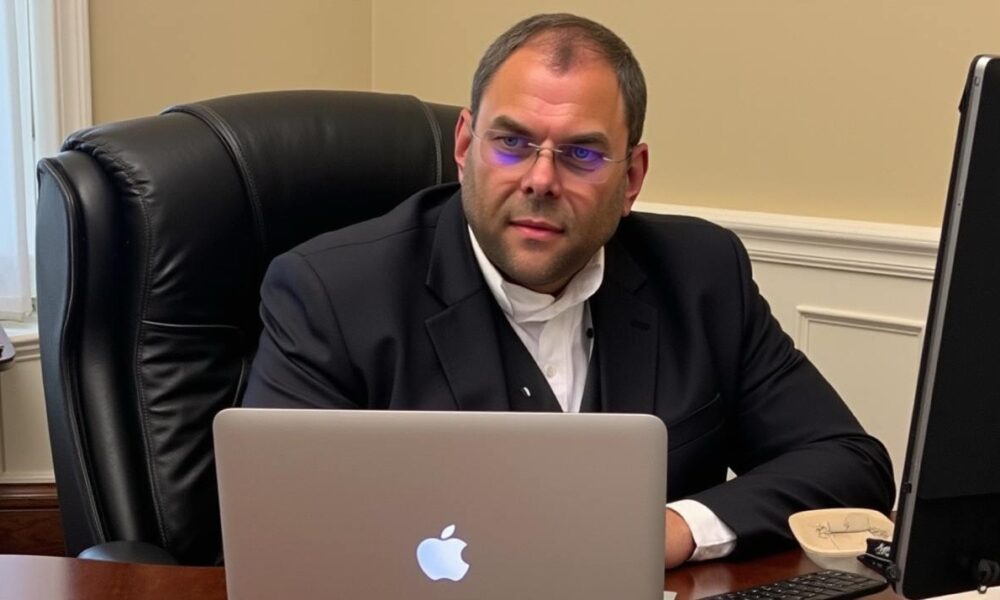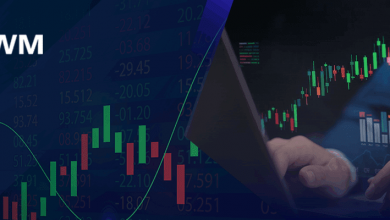Georgii Dubovyi: Experience in Business Management and Transformation

Today we are discussing a unique experience in business management and transformation, which requires not only strategic vision but also the courage to implement it. Our guest is Georgii Dubovyi, an extraordinary international executive and talented business developer who rightfully holds a place at the top of the industry. He is a leader who managed to break through industry limitations, proving that the fundamental principles of growth are universal. As a true guru in his field whose authority is globally recognized, he is among the world’s top experts in startup development, and his expertise is sought after by leading international awards.
Mr. Dubovyi, your career is a vivid example of successful transformation — a journey from managing large logistics companies to creating high-tech R&D projects. What is the fundamental element that enables a leader not just to manage but to truly transform a business, bringing it into new, sometimes radically different, markets?
Thank you for such a high evaluation. At the core of any successful transformation lies strategic vision multiplied by a readiness for decisive action. Managing established processes and transforming a business are fundamentally different tasks. The first requires maintaining efficiency; the second requires creating a new future. My 20 years of experience in strategic management have taught me that the ability to see potential where others see only uncertainty is the key quality of a transformational leader. It is the ability to look beyond the horizon of the current business model, to identify non-obvious growth opportunities, and to mobilize the entire organization to achieve a new, ambitious goal. That is what allows a successful transition from one industry — for example, logistics — to a completely different one, such as R&D and biotechnology.
Your expertise has been recognized not only through awards for your own projects but also through invitations to serve as a judge in prestigious competitions such as the Stevie® American Business Awards and the Globee® Awards. What does it mean to you to evaluate the achievements of other companies from the perspective of an industry expert?
Being invited as a judge to such iconic platforms is a great honor and a huge responsibility. Serving on the jury of the Stevie Awards for the Company/Organization & Achievement Awards Jury in 2025, as well as on the judging panel of the Globee® Awards for Achievement that same year, allowed me to look at innovation from a completely different angle. It’s not just about evaluating someone else’s success — it’s a deep analysis of cutting-edge strategies and business models from around the world. When you act as a judge, you get a unique opportunity to observe a cross-section of the entire industry, understand which trends are gaining momentum, and see which approaches are proving most effective. This enriches your own experience and helps you stay at the forefront of modern business processes.
At the Globee® Awards, you evaluated a substantial pool of cases — 50 applications. What criteria do you personally follow when assessing a company’s success and innovation? And what does a project need in order to truly stand out among dozens of strong competitors?
Indeed, the work was extensive — I carefully reviewed and evaluated 50 award cases. With such high competition, a superficial glance is not enough. For me, the priority is a harmonious combination of several factors. Innovation alone does not guarantee success; it must be supported by a scalable and commercially viable business model. I look for proven results, not just beautiful ideas. How does the project impact its industry? Does it set new standards? And of course, behind every outstanding project is strong leadership and a clear vision. To stand out, a company must demonstrate not just one strong aspect, but a synergy of all these elements. A pleasant confirmation of the validity of my approach was the assessment of my work by the organizers: my judging scores received the highest possible rating in their internal system.
The President of the Globee® Awards noted that your extensive expertise covering logistics and R&D in biotechnology was “especially valuable” to the judging process. How does such interdisciplinary experience shape your evaluation and help you see potential where others see only risk?
I am grateful to the President of the Globee® Awards, San Madan, for such words. This interdisciplinary experience is indeed my unique advantage. Experience in logistics is a school of strict operational and financial discipline, where all processes must be fine-tuned to the smallest detail. This forms a solid foundation. On the other hand, working in the field of R&D and biotechnology teaches you to value long-term vision, take calculated risks, and manage innovation where results are not always guaranteed. This combination allows me to make a comprehensive assessment. I can evaluate both the financial sustainability and operational efficiency of a company, as well as the boldness of its innovation strategy. It helps distinguish a justified risk leading to a breakthrough from reckless adventurism.
Having assessed the best achievements of American business and led your own international projects, what transformational trends, in your opinion, will shape the global business landscape in the coming years? What kind of leadership will be needed to navigate this future?
We are entering an era where the boundaries between industries are becoming increasingly blurred. I see several powerful trends. First is the deep integration of technologies—particularly artificial intelligence—into all areas of business, from biotechnological research to the optimization of logistics chains. Second is the growing demand for sustainability and social responsibility, which is no longer just a trend but a baseline expectation for any serious company.
This future will require a new type of leadership. Successful leaders will not be narrowly specialized but will possess cross-functional expertise and global thinking. They must be flexible and adaptive, capable of learning and relearning quickly, managing distributed international teams, and making decisions in conditions of constant uncertainty. The future belongs to transformational leaders who can not only lead others but also create an environment where innovation becomes a continuous process.
Returning to your awards, the Global 1000 Award jury granted you a special nomination “For pioneering contribution to the development of international startups” and noted that entrepreneurs like you are the ones “shaping the modern economy.” What do these high accolades mean to you? What exactly is your pioneering contribution?
These accolades are a great honor and an accurate reflection of my professional philosophy. My pioneering contribution does not lie in the creation of a single specific product, but in the development and practical proof of a universal modelfor building successful ventures across radically different fields. I consistently demonstrate that the fundamental principles of strategic management, financial control, and effective leadership are not confined to any one industry.
My journey—from managing luxury brand distribution and building an award-winning logistics corporation to launching a complex biotechnological production—is a demonstration of how these principles can be adapted and applied to achieve outstanding results in any domain. Shaping the economy means creating working, scalable models that other entrepreneurs can use as precedents, as roadmaps for entering new and complex niches. My contribution is the creation of such a precedent.
Often, leaders are strong in either the technical, financial, or humanitarian domains. Your background is unique: you are an engineer-physicist, a certified chief accountant, and a top manager with 20 years of experience managing international teams. How does this synthesis of three seemingly different roles allow you to succeed where others see insurmountable barriers?
This synthesis is my main asset. These three roles do not contradict but synergistically reinforce each other. Engineering education provides systems thinking and the ability to deeply understand the technical aspects of any project—whether it’s complex logistics or an essential oil extraction line. My qualification as a chief accountant ensures that even the boldest innovation is calculated, economically justified, and underpinned by solid financial control from the outset.
But both of these elements would remain only on paper without the third—leadership. The ability to form, motivate, and lead a team of over 100 people is what turns technical drawings and financial models into a real, functioning business. This combination allows me to holistically manage the entire business cycle—from scientific concept to commercialization and complex international logistics. It removes the barriers between R&D, finance, and operations, because I speak all their languages. That is the very advantage that enables success.




